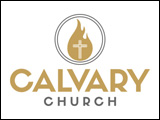The facilitator of the Western Canada PRRS-Free Herd Certification Pilot Project says the amount of time required to achieve certification under the new program will vary from farm to farm, depending on their individual records and on their individual schedule for testing.
The Western Canada PRRS-Free Herd Certification Pilot Project, an initiative of the Canadian Swine Health Board, is being rolled out this spring and summer.
Swine premises across Saskatchewan, Alberta and Manitoba that are free of Porcine Reproductive and Respiratory Syndrome are eligible to participate.
Program facilitator Dr. Leigh Rosengren says the goal is to put a value on health status by supporting claims that producers often make when they’re selling pigs that they don’t have something.
PRRS is a viral disease of pigs.
It affects all ages of pigs but the syndrome is very variable depending on the age.
In breeding animals it tends to cause reproductive failure abortions, stillborns.
In growing pigs it causes immunosuppression which generally manifests itself as respiratory disease.
The purpose of the certificate is to facilitate the trade or sale of animals that have a certain health status.
The time from enrollment till certification will vary substantially herd to herd because herds have a lot of flexibility in determining how often they want to sample and how many samples they want to collect.
We envision for many of our herds that have already been doing regular PRRS monitoring that many of them will already have sufficient diagnostic tests that they’ll be certified essentially immediately upon enrollment.
Dr. Rosengren notes PRRS was selected for the certification program because it’s the disease that costs the Canadian swine industry the most money, an estimated 130 million dollars per year.
She says PRRS is a highly infectious disease so, if we can develop programs that help us control PRRS, we’re very well positioned to address many of the other endemic diseases affecting pigs.
Source: Farmscape.Ca



